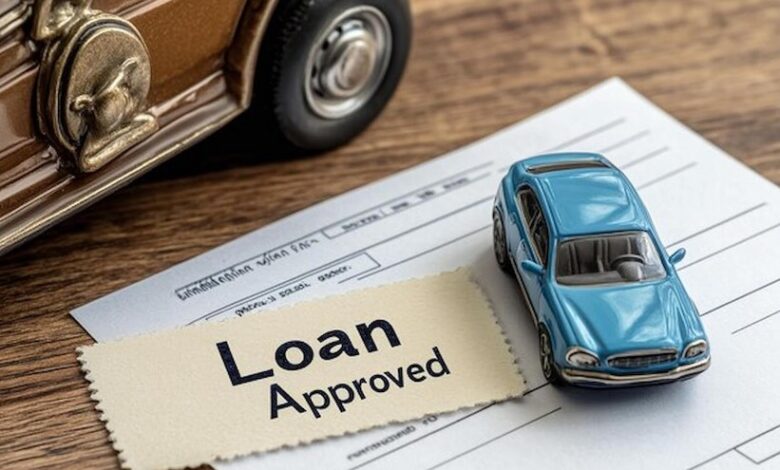How to Improve Your Credit Score Before Applying for a Car Loan

Your credit score is a crucial determinant that lenders evaluate when assessing your eligibility for an auto loan. A higher credit score not only increases your chances of loan approval but also secures more favourable interest rates, potentially saving you thousands of dollars over the life of the loan. If you plan to finance a car soon, ensuring your credit score is in the best shape possible is essential. This guide will walk you through practical steps to improve your credit score before applying for a car loan, helping you get the best deal possible.
The Importance of Your Credit Score
Before diving into the steps to improve your credit score, it’s crucial to understand why your credit score is so important when applying for car loans. Lenders use your credit score to gauge your financial responsibility and determine the level of risk they take by lending you money for car loans. A higher credit score suggests that you are a reliable borrower who will likely repay the loan on time. Conversely, a lower score may lead to higher interest rates or loan denial.
Check Your Credit Report for Errors
One of the first steps in improving your credit score is reviewing your credit report for errors. The score can be adversely affected by the slightest error, such as an incorrect balance or a delayed payment made on time.
- Obtain Your Credit Report: You are entitled to a free credit report annually from each of the three major credit bureaus—Equifax, Experian, and TransUnion. Review all three reports to ensure accuracy.
- Look for Common Errors: These might include incorrect personal information, duplicate accounts, or accounts that don’t belong to you. Pay special attention to your payment history and account balances.
- Dispute Any Errors: If you find any errors, immediately file a dispute with the credit bureau reporting the incorrect information. They are required to investigate and correct any inaccuracies, usually within 30 days.
Make Timely Payments
Your payment history is the most significant factor in your credit score, accounting for 35% of your FICO score. Late payments can severely damage your credit, so it’s essential to establish a consistent payment routine.
- Set Up Automatic Payments: To avoid missing any payments, set up automatic payments for all your bills, including credit cards, loans, and utilities. It ensures that payments are made on time, every time.
- Pay More Than the Minimum: Pay more than the minimum amount due on your credit cards each month. It helps reduce your outstanding balance faster and shows lenders you’re serious about managing your debt.
- Address Past Due Accounts: If you have past-due accounts, bring them up immediately. While late payments will remain on your credit report for seven years, making consistent, on-time payments moving forward will help improve your score over time.
Read also: Comparing Short-Term vs. Long-Term Emergency Loans for Bad Credit
Reduce Outstanding Debt
Your credit utilisation ratio—the amount of credit you’re using compared to your total credit limit—plays a significant role in determining your credit score. A high ratio can lower your score, making it essential to reduce your outstanding debt before applying for car loans.
- Pay Down High-Interest Debt: Start by paying down high-interest credit cards and loans. It improves your credit score and reduces the interest you’ll pay over time.
- Avoid Closing Accounts: While it might be tempting to close credit card accounts after paying them off, doing so can harm your credit score by reducing your available credit. Instead, keep the accounts open but refrain from using them.
- Consider a Debt Consolidation Loan: If you have multiple high-interest debts, consolidating them into a single loan with a lower interest rate can help you manage your payments more effectively and improve your credit score.
Limit New Credit Inquiries
Every time you apply for new credit, such as a credit card or a loan, a hard inquiry is recorded on your credit report. While one or two inquiries may have a minimal impact, multiple inquiries within a short period can significantly lower your score.
- Avoid Applying for New Credit: In the months leading up to your car loan application, avoid applying for new credit. Each application triggers a hard inquiry on your credit report, which may cause a temporary decrease in your credit score.
- Shop for Loans Within a Short Time Frame: If you compare loan offers, try to do so within a short period, typically 14 to 45 days. Credit scoring models will treat multiple inquiries within this window as a single inquiry, minimising the impact on your credit score.
- Be Strategic with Credit: If you must apply for new credit, do so selectively and only when necessary. Avoid taking on additional debt that could increase your credit utilisation ratio or make it harder to manage your payments.
Conclusion
Improving your credit score before applying for a car loan can significantly affect the terms and conditions you’re offered. By checking your credit report for errors, reducing outstanding debt, making timely payments, and limiting new credit inquiries, you can enhance your credit profile and secure a better deal on your car loan. Start working on your credit score today so that when you apply for your car loan, you’ll be in the best possible position to get the vehicle you want at a rate you can afford.




